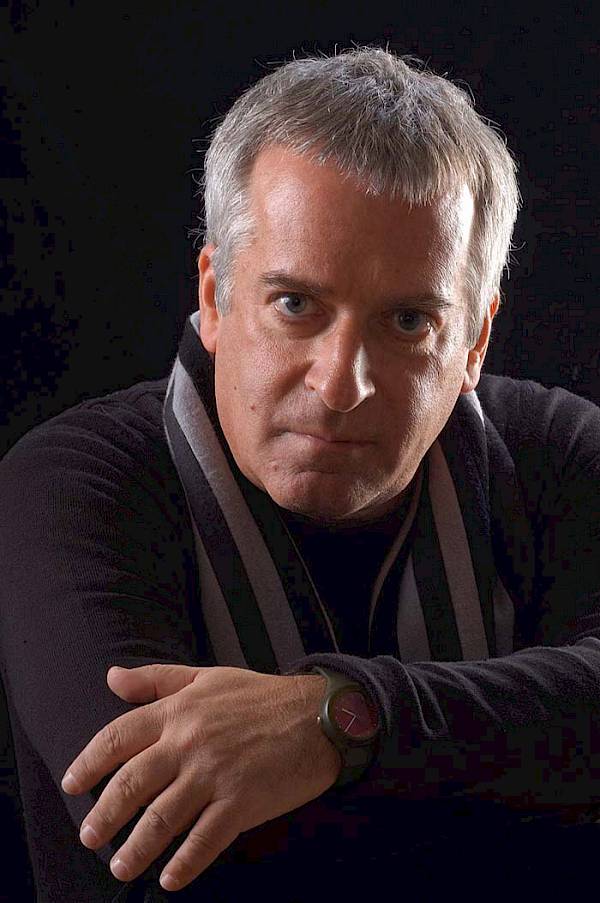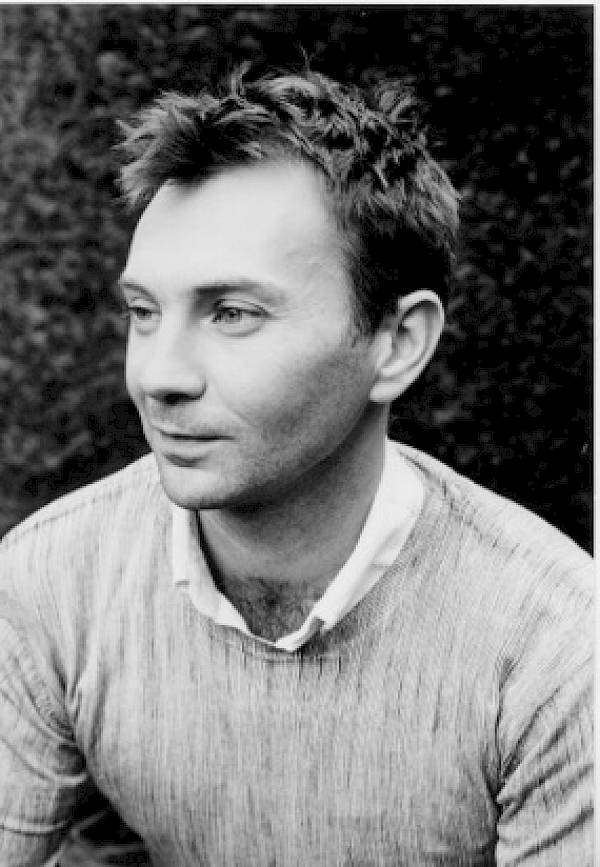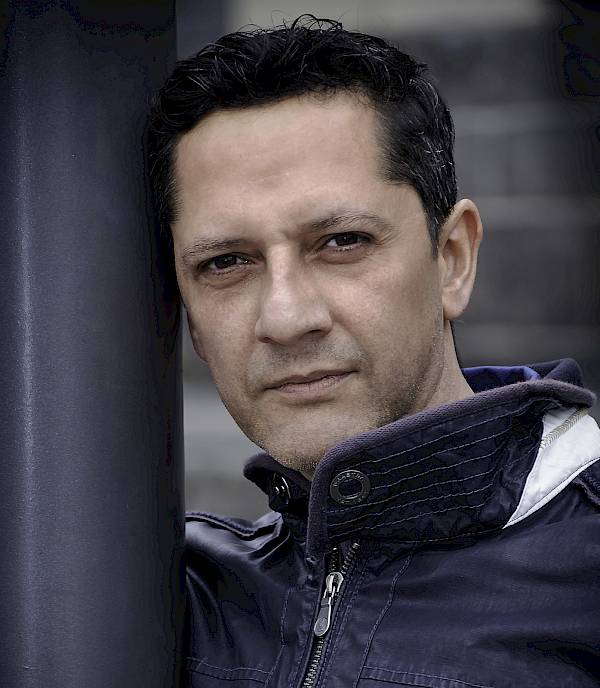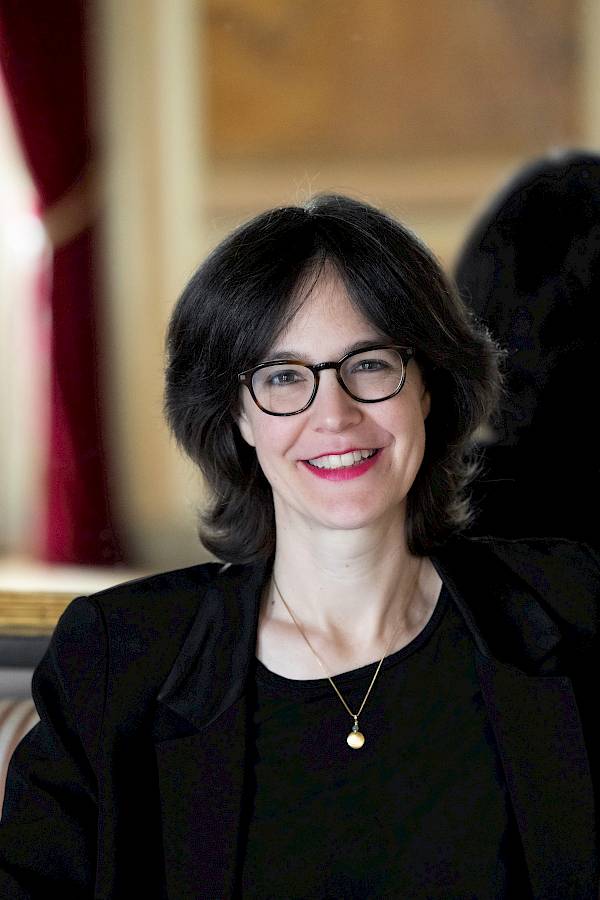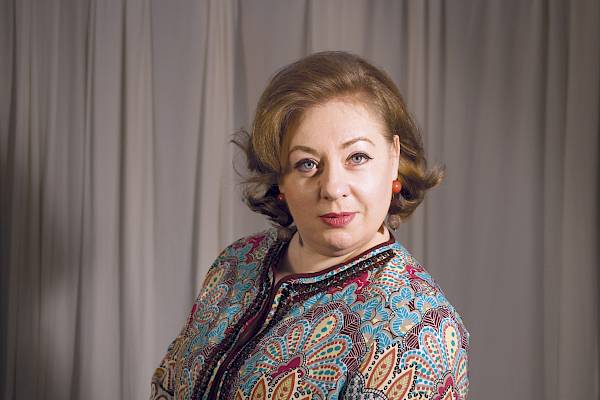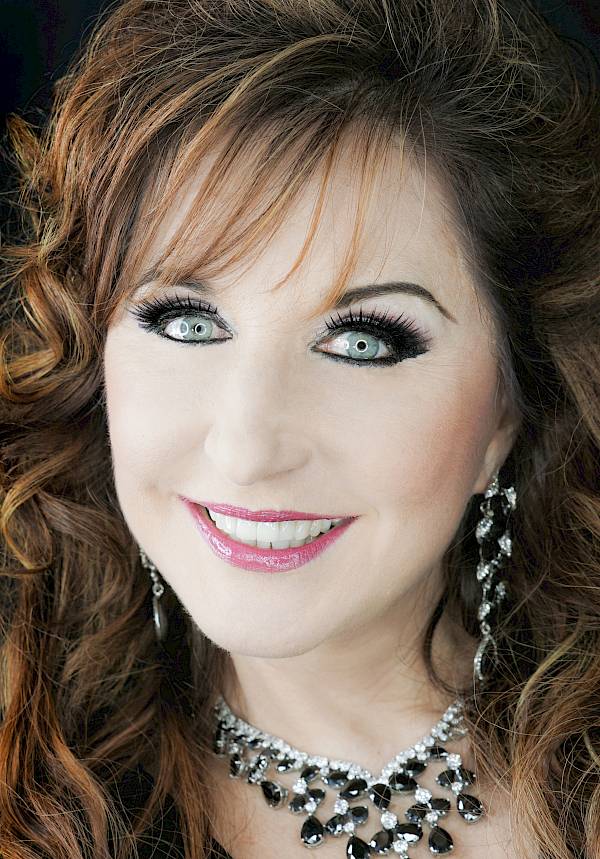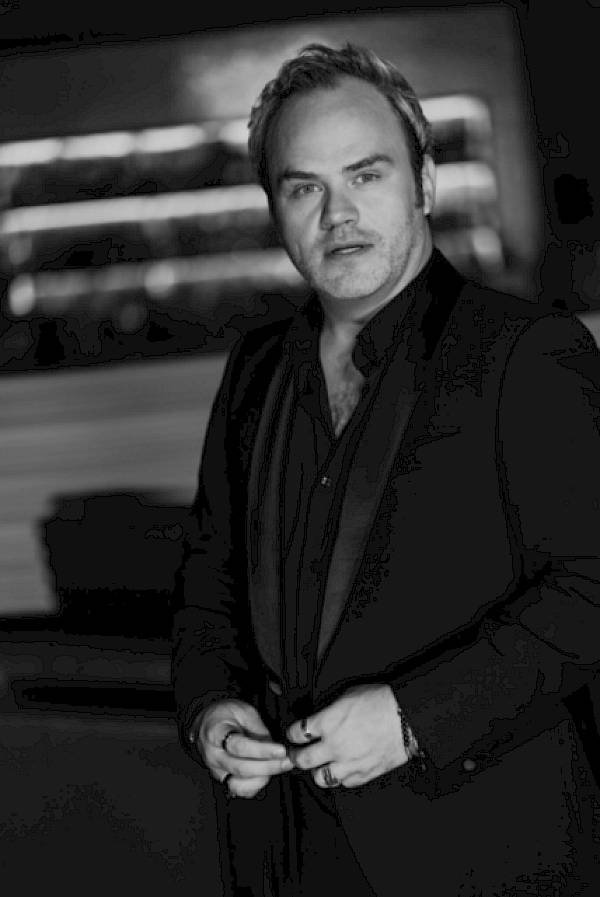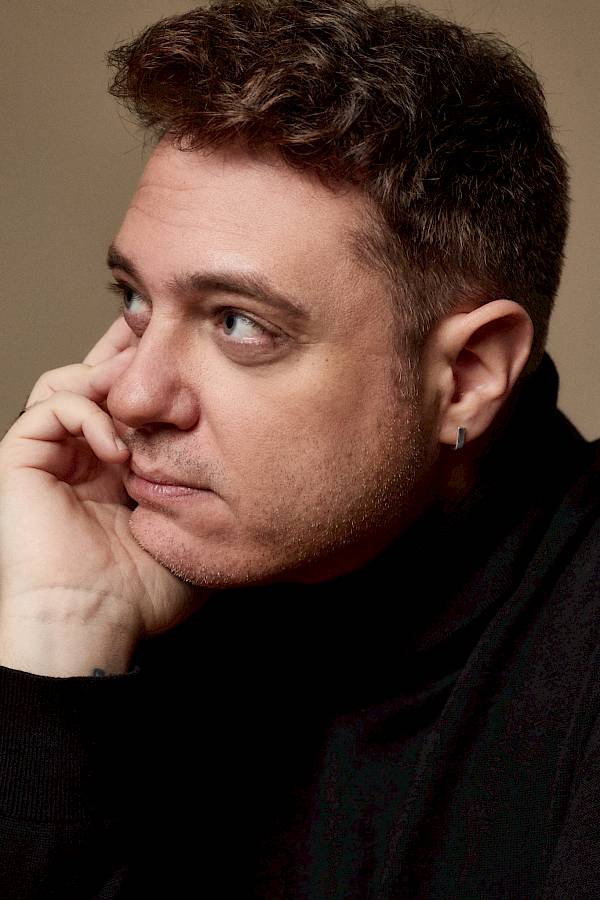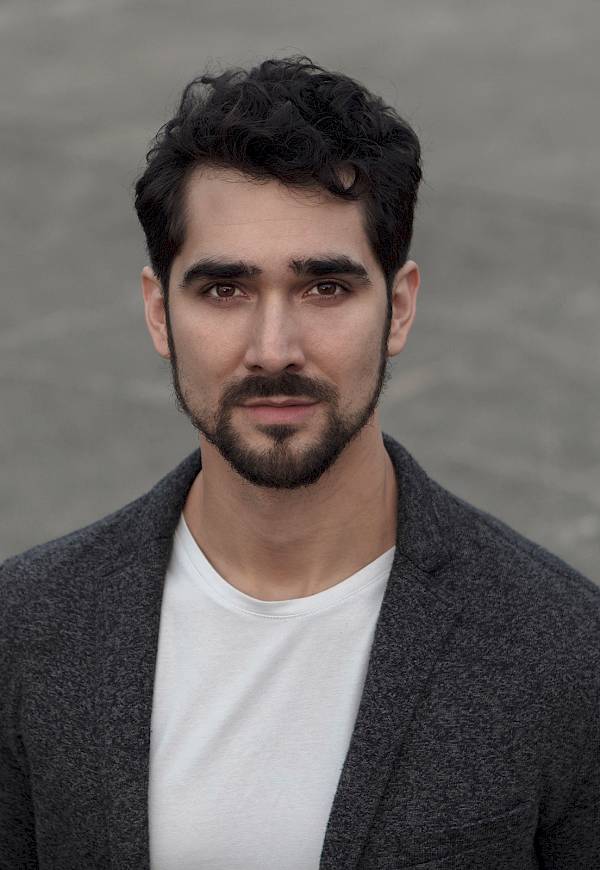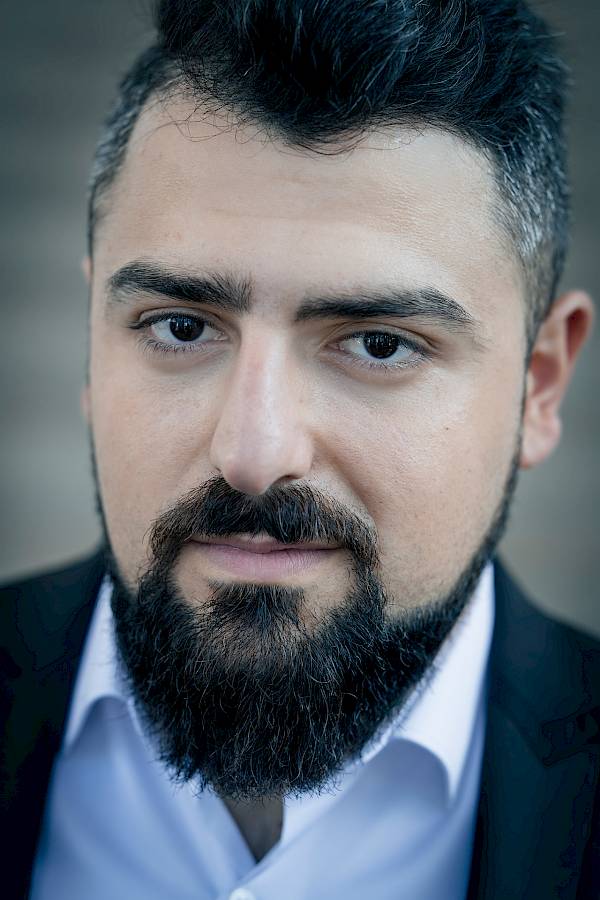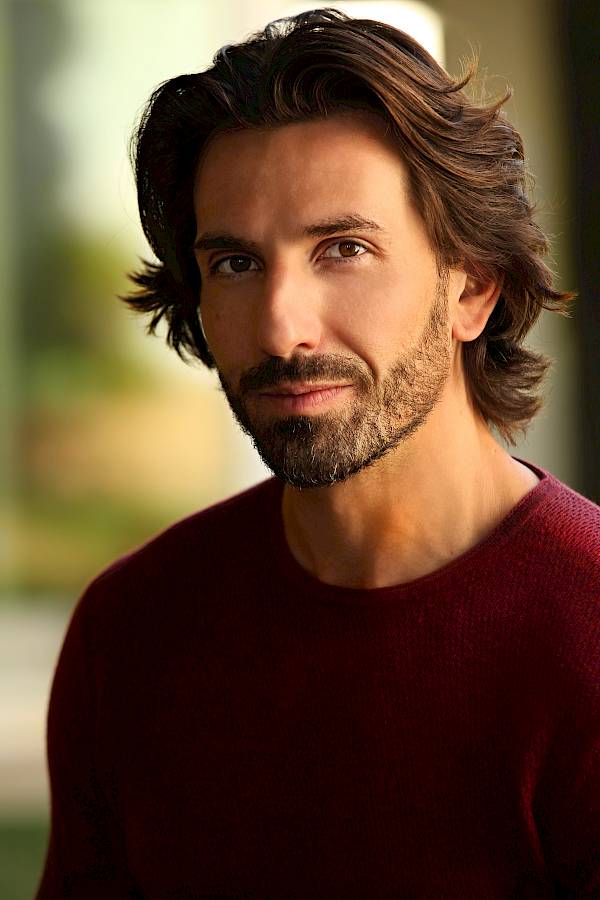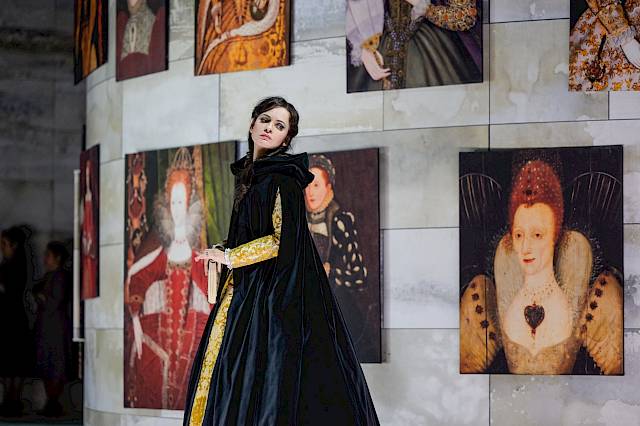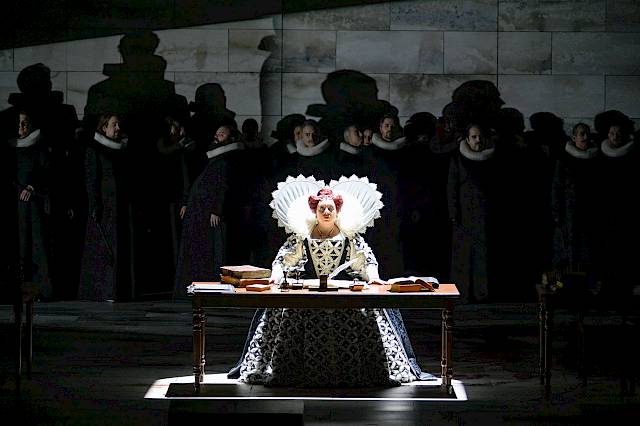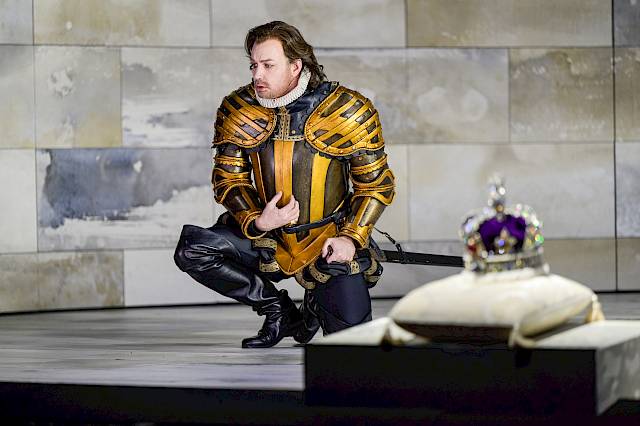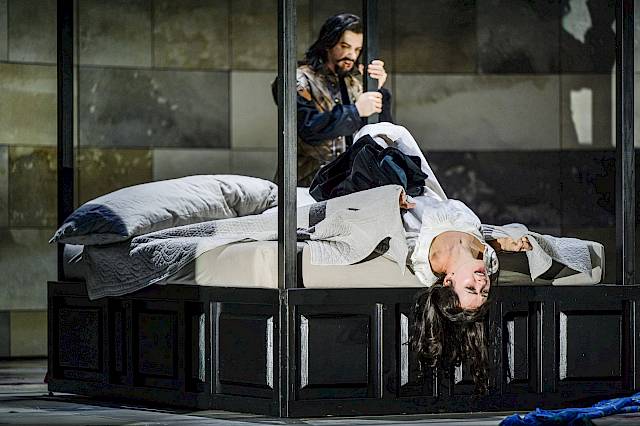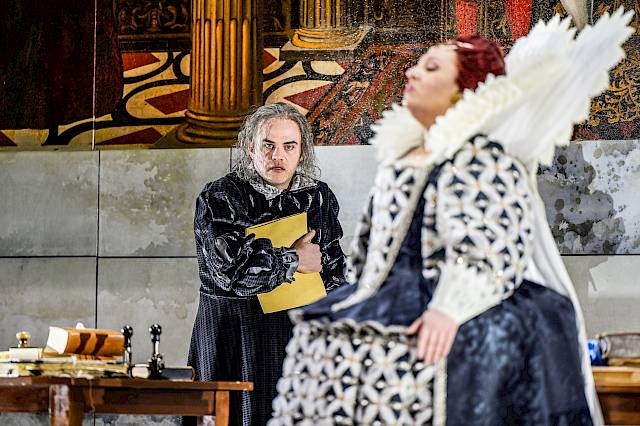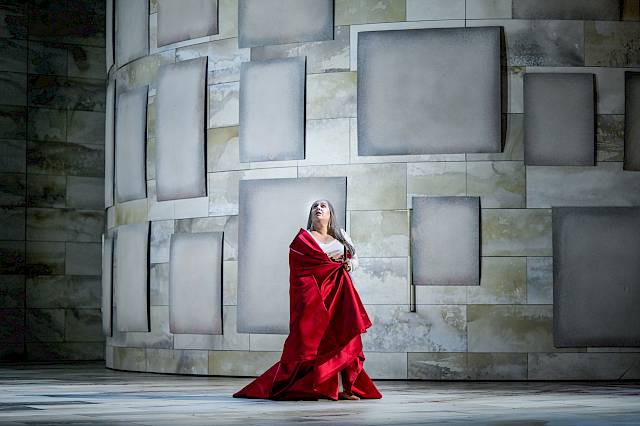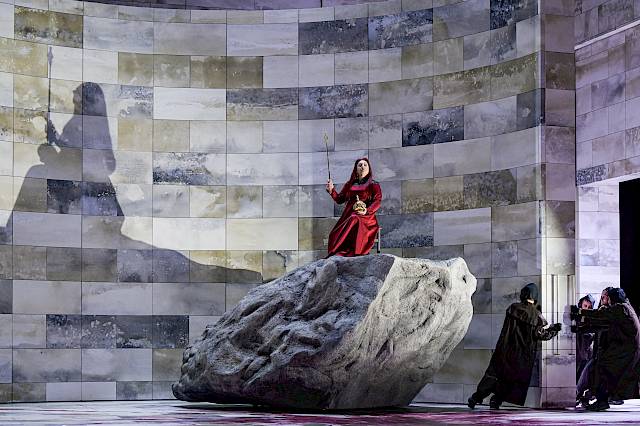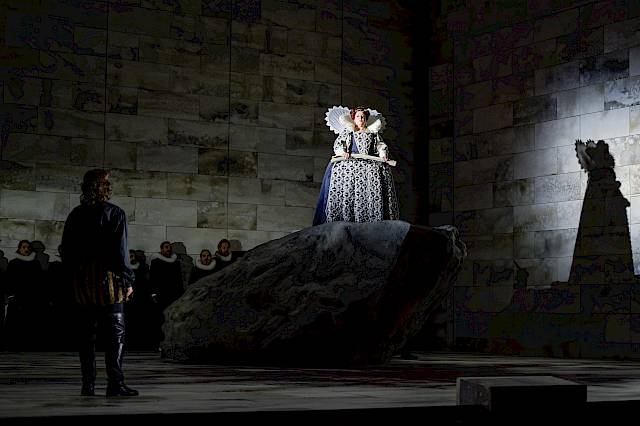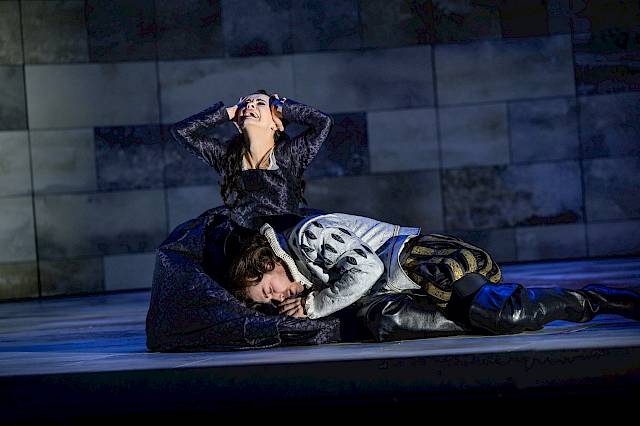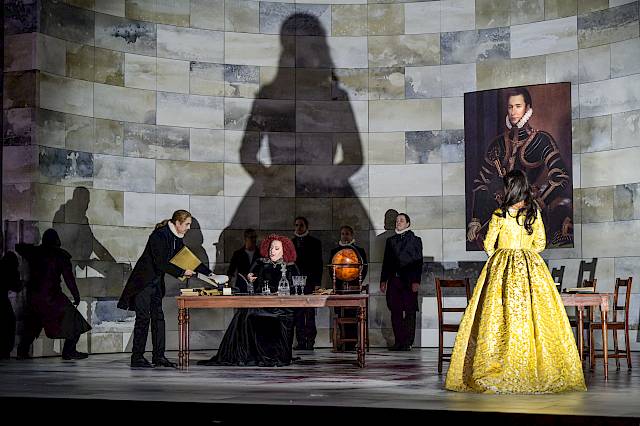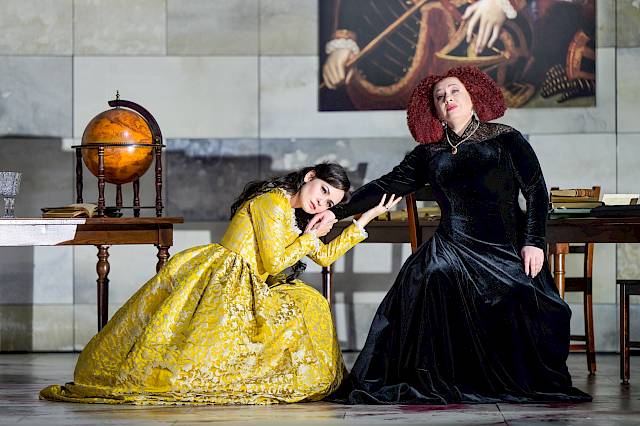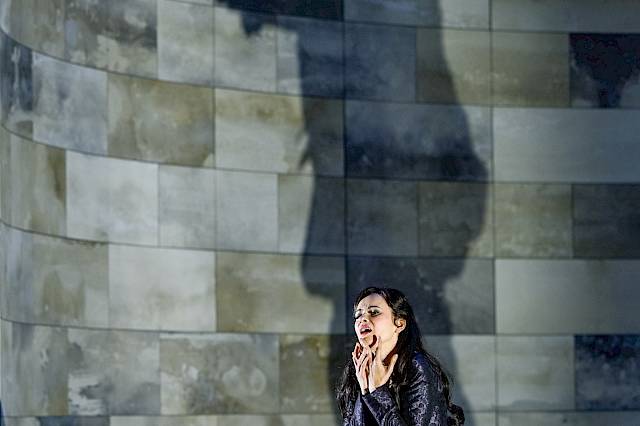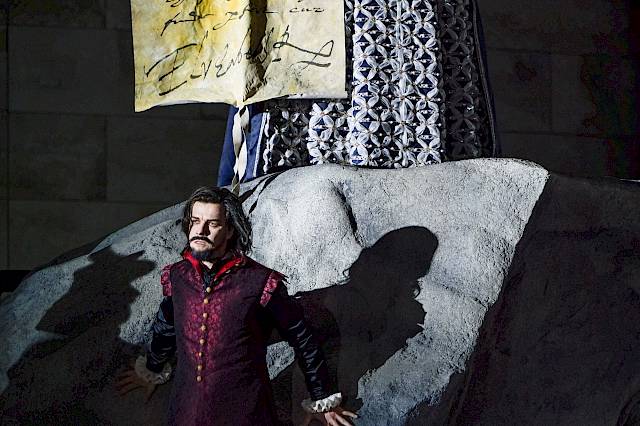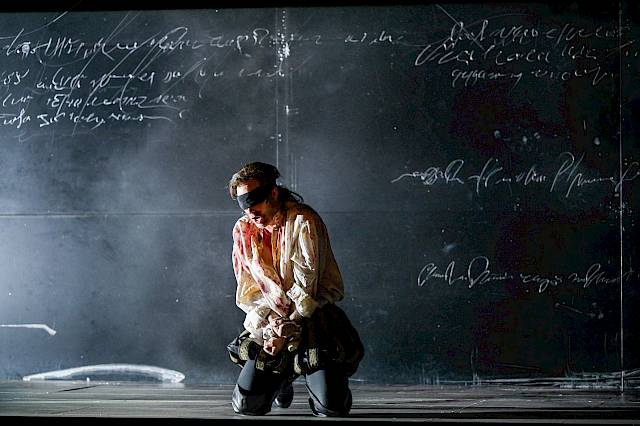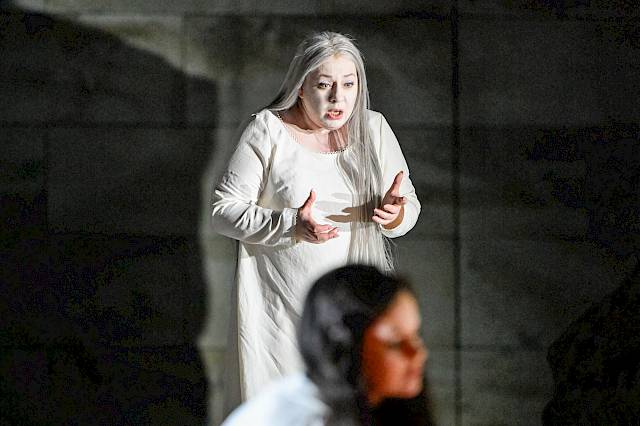Act One
Observed by the ladies of the court, Sarah, Duchess of Nottingham, reads the story of the unhappy lover Rosamund. Sarah is in love with Robert Devereux, Earl of Essex - her husband's closest friend.
Queen Elizabeth appears and tells Sarah, her confidante, of Robert Devereux's imminent return from Ireland, where he had led a military campaign as the Queen's commander-in-chief. Devereux, however, had disobeyed the Queen's orders, unilaterally concluding a truce with the Irish rebels. He now faces trial for high treason. Elizabeth suspects that Devereux, her favourite, is guilty not only of treason but also of infidelity to her. Were she to have a rival, her revenge would be terrible.
Lord Cecil puts forward Parliament's urgent wish to bring Devereux to trial, but Elizabeth hesitates and demands further proof of his guilt. To Robert, the Queen reaffirms her promise that the ring she once gave him will always serve to guarantee his safety, and reminds him of the happy times they shared in the past. An awkward remark by Robert leads Elizabeth to conclude that he is in love with someone else. Now she is determined that Robert should die, and that her rival should thereby also be punished.
The Duke of Nottingham finds his friend Devereux distraught. Robert confesses to him that he fears the Queen's revenge. Nottingham confides his own worries to his friend: his wife Sarah is suffering from a grief whose cause he does not know. Only yesterday he found her embroidering a blue scarf, weeping and expressing thoughts of death. Nottingham is summoned to the council meeting, and promises Robert that he will defend his honour and do all he can to save his life.
Robert accuses Sarah of infidelity. Sarah defends herself, telling him that after her father's death she was forced by the Queen to marry Nottingham against her will. She advises Robert to rededicate his love to the woman whose ring he wears on his hand. Scornfully, Robert throws away the Queen's love token. Sarah begs Robert to save both his life and her honour, and to flee immediately. As a parting gift, she gives him the scarf.
Act Two
The assembled court anxiously awaits Parliament's decision on the fate of Robert Devereux. Only the Queen's intervention could still save him from death. Lord Cecil announces the verdict to the Queen and courtiers: despite Nottingham's defence, Devereux's death has been decreed.
Sir Walter Raleigh presents the Queen with a blue scarf, which was found during Devereux's arrest and only removed from him after great resistance. Elizabeth now has proof of Robert's infidelity in her hand and swears revenge. In desperation, Nottingham begs for mercy for his friend.
Devereux is led in, and when Elizabeth presents him with the evidence of his deceit, he and Nottingham are equally horrified. Devereux fears for his life, while Nottingham realises he has been betrayed by his best friend. Nottingham wants to hurl himself on Robert with a sword, but Elizabeth prevents it. She promises Robert his life if he gives the name of his rival. But Robert remains silent.
The Queen pronounces the sentence and signs it.
Act 3
A messenger delivers a letter to the Duchess. It is a letter from the imprisoned Robert, informing Sarah of his death sentence and imploring her to take the ring to the Queen as a reminder of her promise. Nottingham catches his wife unawares, and demands the letter. Her protestations of innocence fall on deaf ears. He intends to keep Sarah locked up in his residence until Robert has been executed.
Robert still has hope that Sarah, at least, will find mercy with the Queen. He is not afraid of death, and wants only to save Sarah's honour and then die at Nottingham's hands, in order to convince his friend of Sarah's innocence. Guards collect the prisoner for execution.
Elizabeth complains bitterly at Sarah abandoning her in these sad hours. Her anger is gone. She wants to save Robert's life, even if it is to be a life lived at her rival's side.
Sarah rushes in and delivers Robert's ring to the Queen. She confesses to being Elizabeth's rival and begs for Robert's life. Too late, Elizabeth orders a stay of execution: Nottingham triumphantly reports that Devereux is dead. Elizabeth blames Sarah for Robert's death because of her delay in bringing the ring, but Nottingham confesses that he alone is to blame. The Queen curses them both.
Elizabeth herself sees no more meaning in her life, and declares her renunciation of the throne: James is to be her successor.




